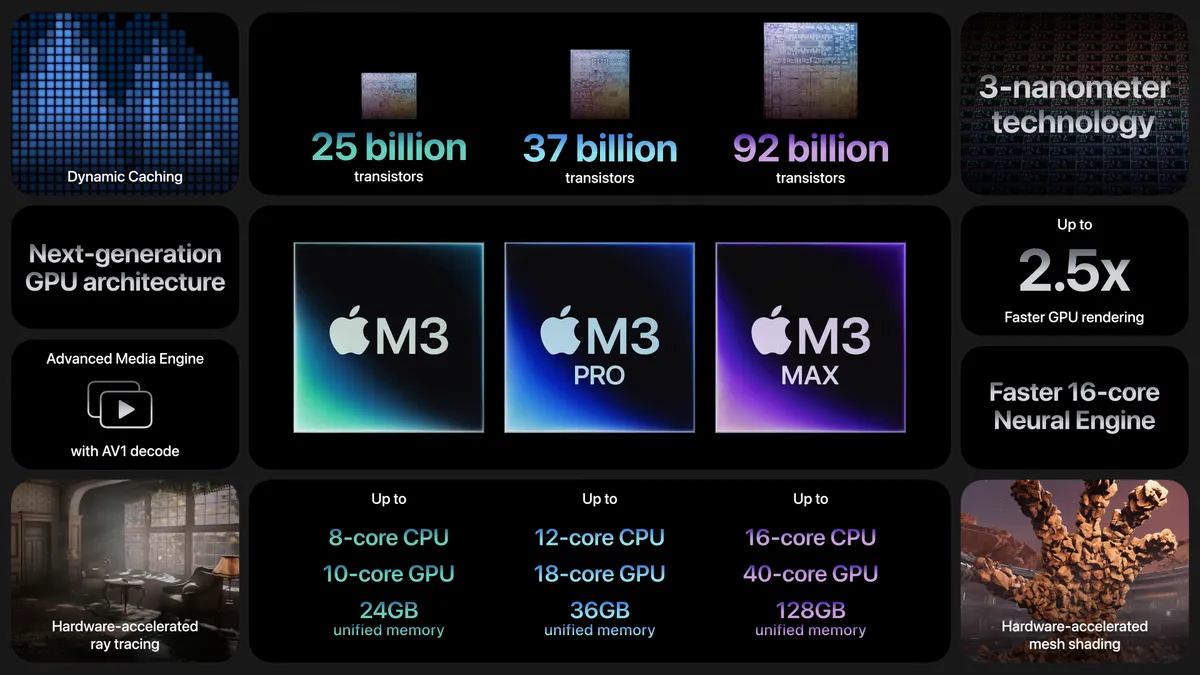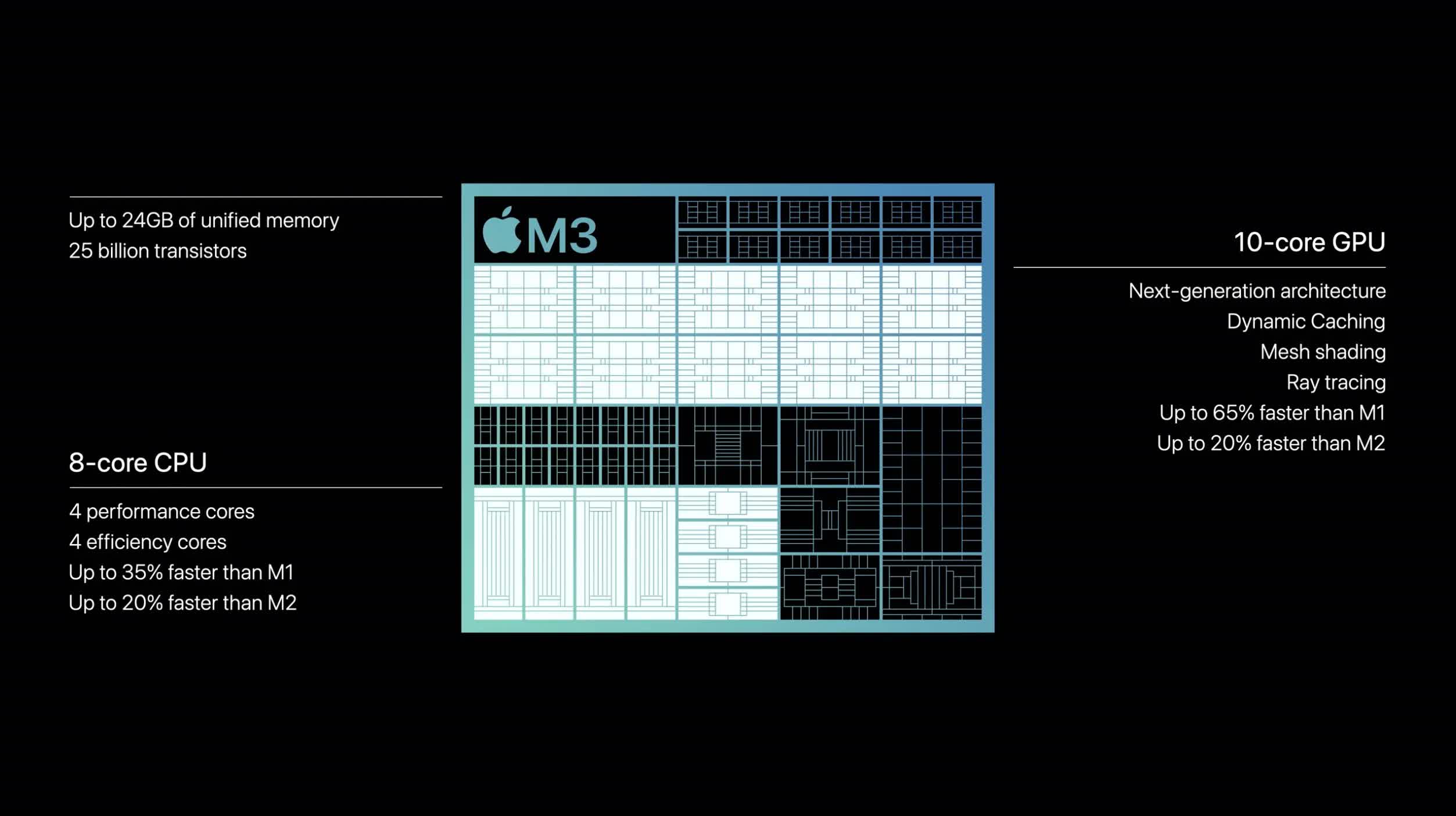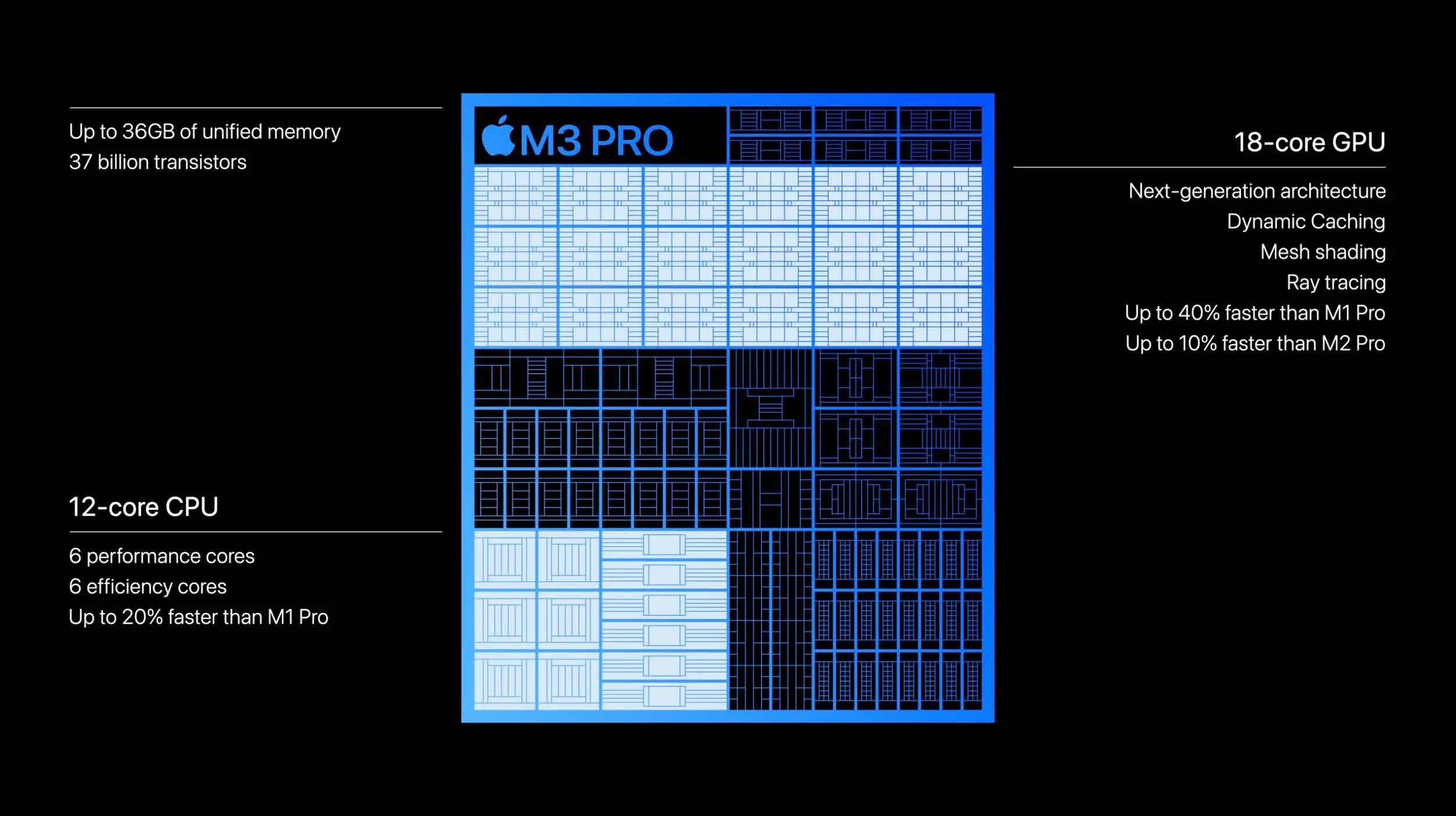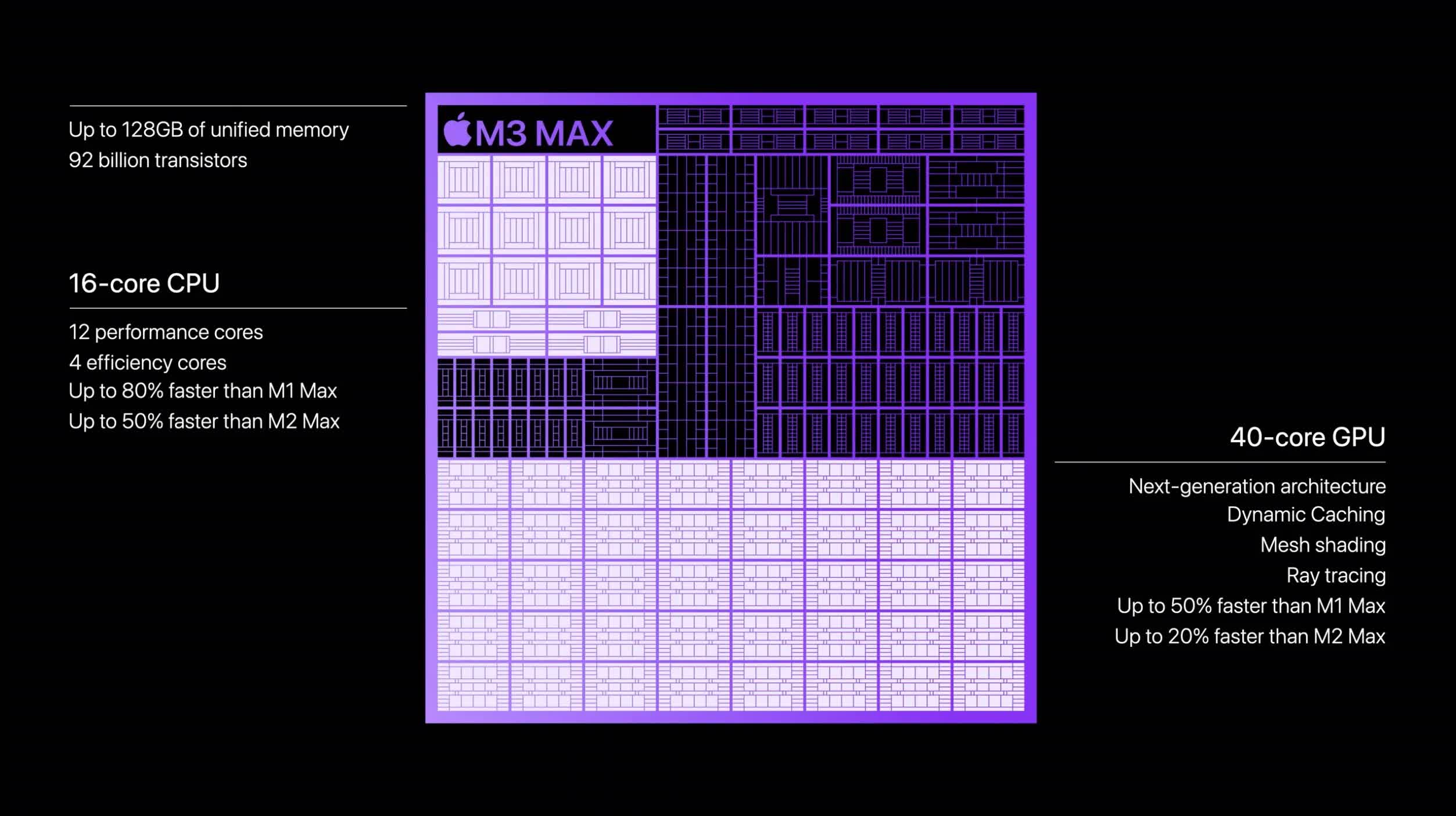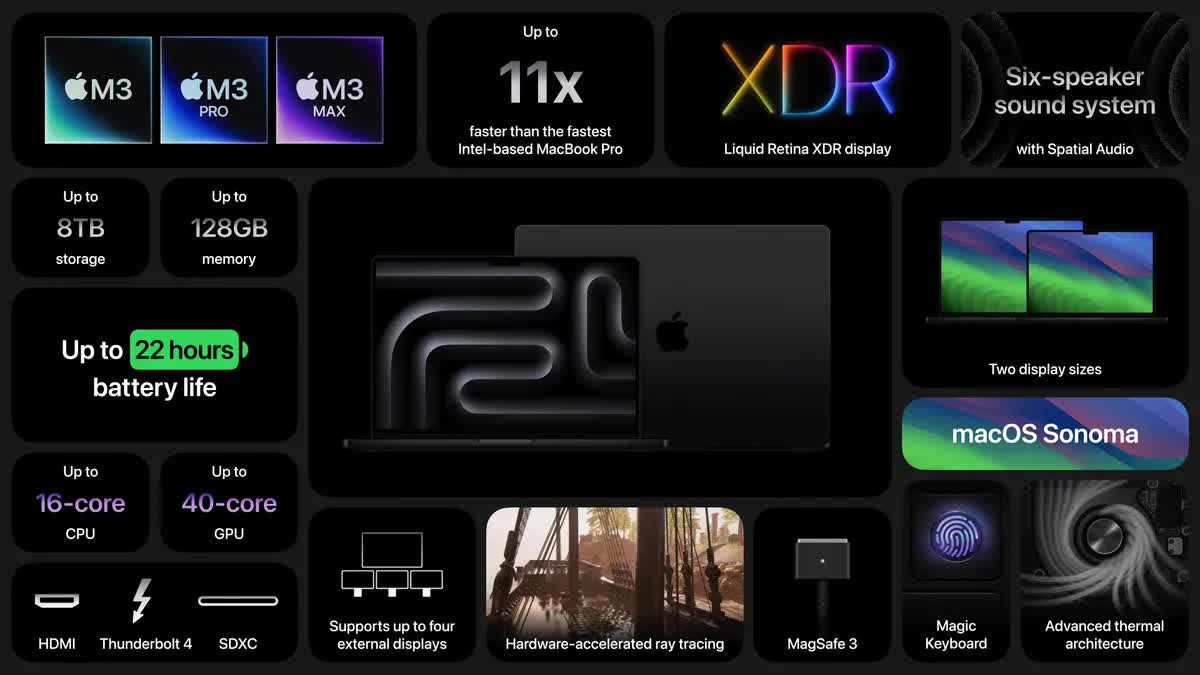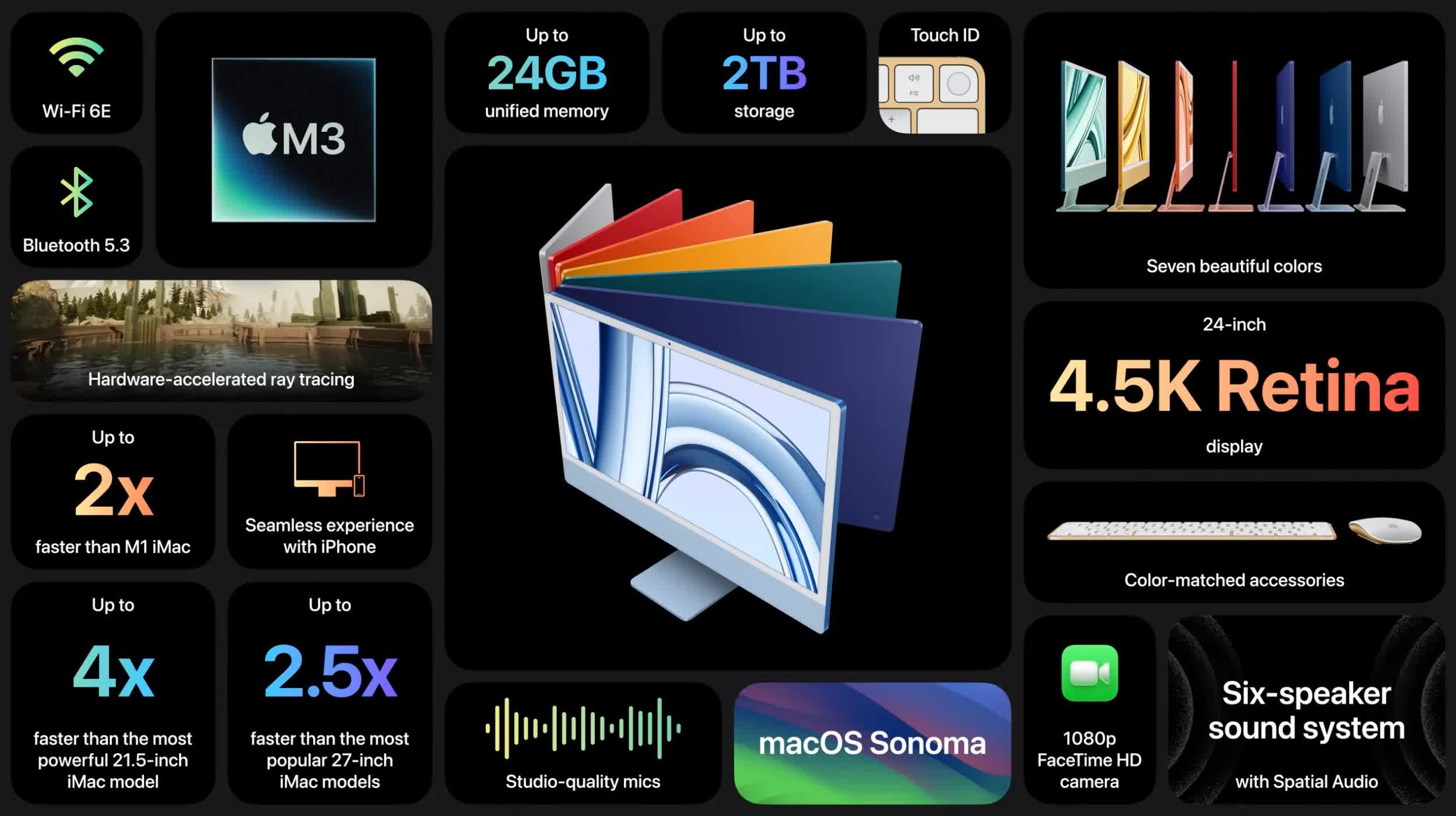Highly anticipated: Apple held its Scary Fast event at the unusual time of 8 pm ET / 5 pm PT the day before Halloween, where it showed off its latest M3, M3 Pro and M3 Max chips. The SoCs will appear in the all-new MacBook Pro 14-inch and 16-inch models, as well as the 24-inch iMac.
The 3nm M3 chips come with a new GPU architecture offering hardware-accelerated mesh shading, ray tracing, and Dynamic Caching, the latter of which allows the allocation of local memory in real time based on an application's needs.
Without going into further detail, Apple said that the M3's GPU is 1.8 times faster than the M2 and 2.5 times faster than the M1 in Pro apps. It can also reach the same performance level as the M1 using half the power.
Looking at the individual chips, the M3 features an 8-core CPU (four performance cores and four efficiency cores) and a 10-core GPU with support for 24GB of unified RAM. Apple says its single-threaded performance is up to 35% faster than the M1 Pro.
The M3 Pro increases the CPU core count to 12 (six performance, six efficiency) and has an 18-core GPU with support for up to 36GB of memory. The flagship M3 Max, meanwhile, comes with a 16-core CPU (12 performance, four efficiency), a 40-core GPU, and support for up to 128GB of RAM. It also features two ProRes engines, which should please video editing professionals. Apple says the chip is 80% faster than the M1 Max.
Apple added that the M3's AI-focused Neural Engine is up to 60% faster than the one used in the M1 series of chips. There's also a new media engine supporting AV1 decoding and featuring hardware acceleration for H.264, HEVC, and ProRes (standard and RAW).
Elsewhere, the new MacBook Pros are said to offer 22 hours of battery life, a better Liquid Retina XDR display, and a peak HDR brightness of 1,600 nits.
The entry-level 14-inch MacBook Pro will come with the standard M3; the laptop replaces the 13-inch MacBook Pro with the Touch Bar keyboard. This size model will also be available with the M3 Pro and M3 Max, whereas the two higher-end chips will be the only options in the 16-inch MacBook Pro. The M3 Pro and M3 Max laptops get a new Space Black color option, too.
The base 14-inch M3 MacBook Pro will start at $1,599 while the 16-inch Pros starts at $2,499. They can be ordered today, though the M3 Max models don't ship until November.
Moving onto the 24-inch iMac, the new version marks the first time the all-in-one has been updated since April 2021 when the M1-powered machine arrived.
Apple says the M3-powered iMac (there are no options with the M3 Pro or M3 Max) is up to two times faster than its predecessor and 2.5x faster than 27-inch Intel-based all-in-one PCs.
iMac prices remain the same, starting at $1,299 for the 256GB storage and 8GB RAM configuration. It can be ordered today for shipping next week.
https://www.techspot.com/news/100675-apple-unveils-m3-chips-powering-new-macbook-pros.html
